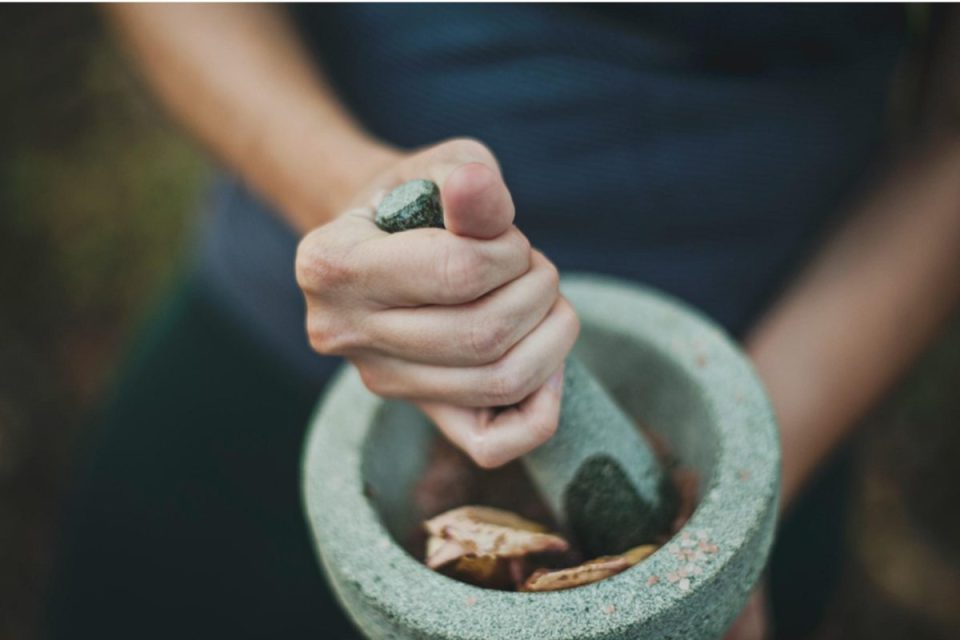Many people are looking for legitimate herbal remedies that they can use instead of, or as a supplement to, mainstream medications. The reasons that people might be looking for more natural options are many, and range from the need for cheaper medications, to the desire to have less reliance on pharmaceutical options, to dissatisfaction with their current medications. Many people are looking for less addictive ways to help mitigate chronic pain while others are seeking options with fewer side effects.
However, in many cases, the herbal remedies we are familiar with have shown little benefit in scientific studies. Some plants have shown no benefit at all, while other herbs have had mixed results. People looking for legitimate, proven herbal remedies can have a hard time deciding which plants they should try based on the amount of confusing and misleading information available. However, there have been some plants that have shown more consistent promising results. Here are several herbs that have shown potential benefits and that you may want to research further:
Table of Contents
Cannabis
Cannabis is a plant that is widely used for medicinal purposes. It contains compounds known as cannabinoids, which have been shown to have therapeutic effects for a range of conditions, including chronic pain, nausea, and muscle spasms. Many of these uses are still in the beginning stages of study. However, the use of cannabis to help those struggling with anxiety has been going on for years and is fairly well documented. It has also been promising in the treatment of seizures and intestinal illnesses in many studies.
Kratom
Kratom is a tree native to Southeast Asia that is commonly used for its pain-relieving and mood-enhancing effects. It contains compounds known as alkaloids, which interact with opioid receptors in the brain to produce pain relief. In low doses, this plant acts as a stimulant, while at higher doses, it’s a sedative. In Asia, the plant has been used to help increase energy levels in farmers and other laborers, and as a mood boost. It is also used as a pain killer and to help people avoid the withdrawal symptoms of opioid drugs. Traditionally, it is often consumed directly in leaf form or as tea. In the United States, kratom capsules are available.
Salvia
Salvia is a plant native to Mexico that is commonly used for its hallucinogenic effects. It contains a compound known as salvinorin A, which produces intense psychedelic experiences. It has been used for centuries in religious and cultural ceremonies in the native peoples of Mexico but is now becoming more popular in other places as well. It is being used as a recreational drug in many areas, as it is relatively safe and has a low risk of addiction. It has traditionally been used to help treat inflammation, seizures, and other illnesses and contains powerful antioxidants.
Kava
Kava is a plant that is inhabitant to the South Pacific that is commonly used for its calming and anxiety-reducing effects. It has been made into a traditional calming drink in this area for centuries and is an important part of ceremonies and cultural gatherings. Kava contains compounds known as kavalactones, which interact with the brain’s GABA receptors to produce a relaxing effect. The plant has shown promising abilities as a painkiller and seems to be non-addictive. It may someday be an effective substitute for more dangerous narcotic painkillers.
St. John’s Wort
St. John’s Wort is a plant native to Europe that is commonly used as a natural antidepressant. It contains compounds known as hypericin and hyperforin, which have been shown to have mood-enhancing effects. In some studies, this plant was found to be as effective as many drugs in helping those struggling with depression. However, other recent studies have shown that it was less effective than previously thought, and may be no more effective than a placebo.
Ginkgo
Ginko is a tree that has been used medicinally for years. However, taking the ginkgo plant in its raw form can be dangerous as parts may be poisonous, so only commercially prepared options should be used. Ginkgo has been used as a memory supplement and also to help with circulatory problems. In studies, results of ginkgo on memory loss and dementia have been mixed and not conclusive. In many studies, it seems to be beneficial, while in others, the results are less promising. It has also been used in a more general way to boost energy, reduce fatigue, and help with anxiety.
Turmeric
Turmeric has been used as a spice and herbal remedy in Chinese medicine for thousands of years, but recently its ability to be used as a medicine has gained the attention of both the alternative and the mainstream medical communities. Turmeric has compounds that are beneficial for the joints and it can help reduce pain and inflammation. It may also be beneficial in helping to treat cancer and skin problems. Turmeric can be hard for the body to absorb, so many experts recommend taking it along with black pepper to help increase its absorption rate.
Conclusion
Remember, no herbal supplement has the same consistency in quality, amount, and purity as medical drugs as they are naturally occurring products and undergo less rigorous testing. You should never stop a current medication without talking to your doctor, and you should not mix herbs and medicines without getting your doctor’s approval. While most herbal remedies are generally safe, they could have dangerous side effects, especially if taken at high doses or with other medications.

